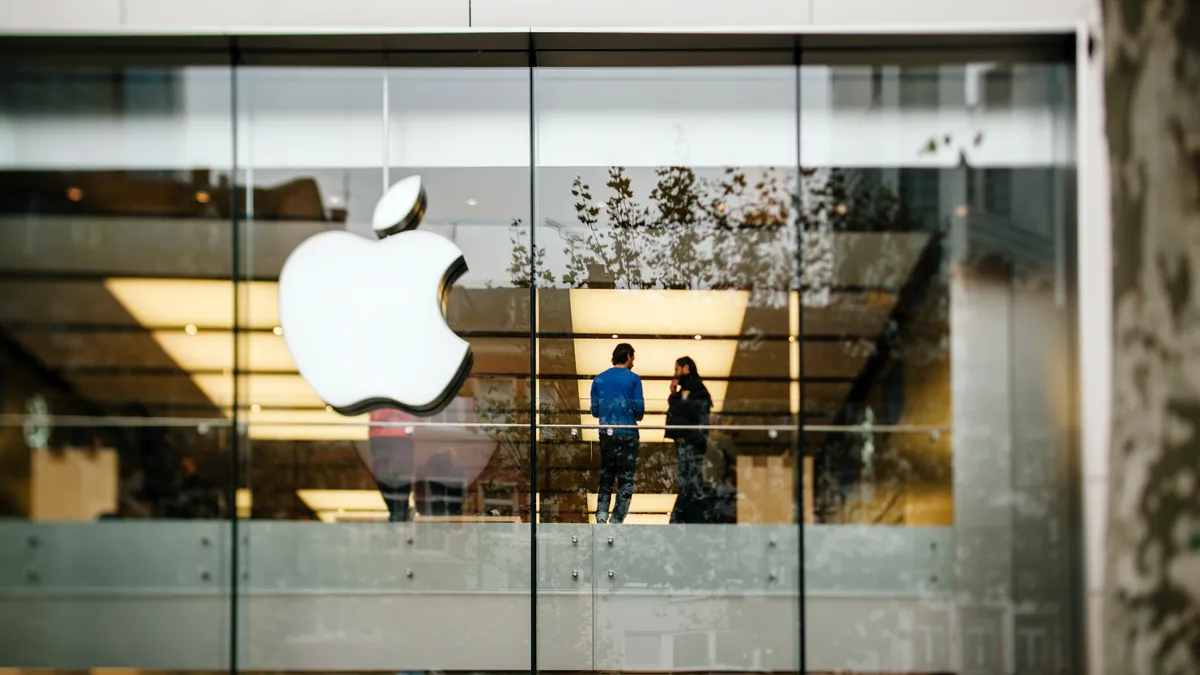Dive Brief:
- Apple has announced that it will open a new U.S. campus and add 20,000 jobs, to both existing locations and the new one, over the next five years.
- The company will announce later this year where it plans to locate its new campus, which will initially house customer technical support.
- Apple also announced moves related to the U.S. tax law reform, namely paying $38 billion in taxes on overseas profits.
Dive Insight:
Although Apple's decision to open a new campus at first might sound similar to Amazon's announcement last year that it is opening a second headquarters (HQ2), there are a lot of differences between the two scenarios. First, Apple outright said the new campus will be a tech support location — not a second headquarters — making it operationally similar to the supply chain and tech support campus in Austin, TX.
Second, the new Apple campus sounds like it will not come close in scope to HQ2; Amazon plans to hire up to 50,000 new employees at its massive, undisclosed new location, whereas only a portion of Apple's 20,000 new employees over the next five years will be hired for the new site.
Third, the types of jobs being promised are in a completely different pay range and therefore brings different economic benefits to the cities where facilities will be located. U.S. tech support job salaries vary by company, but they average about $30,000-$45,000 a year (based on widely-referenced averages from Glassdoor, Indeed.com and Salary.com), whereas Amazon claims the average HQ2 employee will be compensated more than $100,000 annually.
Fourth, and perhaps most notably, Apple did not copy Amazon's bold and unprecedented move of creating a bidding war by soliciting proposals and controversial incentives from cities interested in housing the new location. That being said, even though Apple did not solicit such bids and incentives, cities might choose to voluntarily offer them. In the past, Apple has received millions in tax breaks for its U.S. facilities, including those in Mesa, AZ, Reno, NV, Maiden, NC and Waukee, IA.
Despite the differences, one huge similarity joins the two new campus announcements: Job creation is a big deal for cities, especially when it comes from big-name tech and retail companies such as Apple and Amazon. Offering non-traditional or tech-forward jobs can revitalize cities, especially those that may have been hit by the loss of traditional manufacturing businesses.
Typically, large corporations also bring investments in infrastructure and transportation, and often also green operations. Apple, for example, notes in its press release that the new campus, like all of its U.S. facilities — offices, retail stores and data centers — will be powered by 100% renewable energy sources.
Apple's $38 billion in repatriation tax payments is also getting a lot of attention. It's the first company of its size to announce such a move directly in response to the newly reworked U.S. tax law. Previously, companies often found ways to skirt paying taxes on offshore cash reserves.
With the three announced moves, Apple touts itself as investing in America and supporting the U.S. economy. It could, at least temporarily, stave off criticism that it has received for years regarding its heavy use of overseas production. The company also is increasing its domestic manufacturing partner and supplier fund from $1 billion to $5 billion, which indicates it intends to do more domestic sourcing for its products.












